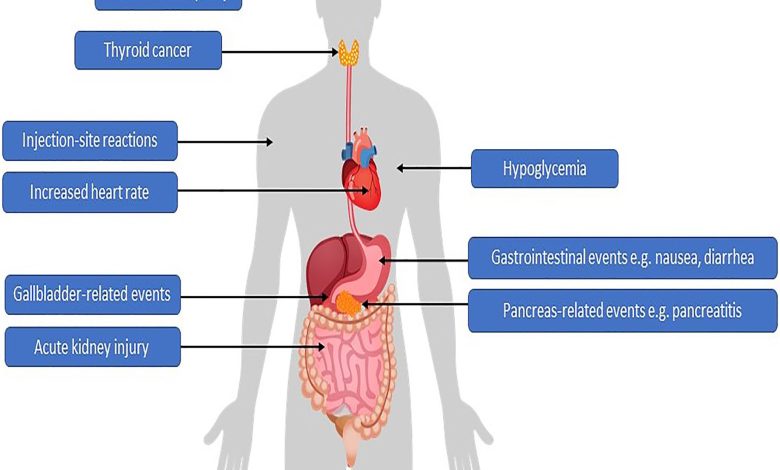Semaglutide for Adolescents: Considerations and Guidelines

In recent years, semaglutide, a glucagon-like peptide-1 (GLP-1) receptor agonist, has gained prominence in the management of obesity and type 2 diabetes. While its efficacy in adults is well-documented, its use in adolescents is a developing area of interest. Understanding the considerations and guidelines surrounding semaglutide for adolescents is crucial for healthcare providers and families navigating this treatment option.
What is Semaglutide?
Semaglutide is an injectable medication that mimics the incretin hormone GLP-1, which plays a vital role in glucose metabolism and appetite regulation. By enhancing insulin secretion, inhibiting glucagon release, and slowing gastric emptying, semaglutide helps lower blood sugar levels and promotes weight loss. Originally approved for adults with type 2 diabetes, recent studies have demonstrated its potential effectiveness for pediatric patients as well.
Indications for Adolescents
The use of semaglutide in adolescents primarily targets those aged 12 to 17 years with obesity or overweight, particularly those with related comorbidities such as type 2 diabetes or hypertension. Adolescents with a body mass index (BMI) at or above the 95th percentile for their age and sex are generally considered for treatment. However, the decision to initiate therapy must be carefully evaluated by healthcare providers, considering the individual patient’s medical history, lifestyle, and treatment goals.
Clinical Considerations
Safety and Efficacy
Before prescribing semaglutide, healthcare professionals must assess its safety and efficacy in the adolescent population. Clinical trials, such as the STEP TEENS study, have shown promising results, indicating significant weight loss and improved metabolic parameters in adolescents treated with semaglutide. However, potential side effects—such as gastrointestinal disturbances, hypoglycemia, and pancreatitis—must be carefully monitored. It is essential for providers to discuss these risks with patients and their families, ensuring informed consent and understanding of the treatment plan.
Dosing
Dosing guidelines for adolescents may differ from those for adults. The recommended starting dose for adolescents is typically lower than that for adults, allowing for gradual titration based on tolerance and therapeutic response. Following the initial dose, the healthcare provider can adjust the dosage every four weeks, up to a maximum of 2.4 mg once weekly. This gradual approach helps minimize side effects while maximizing the therapeutic benefits.
Psychological Support
The adolescent years are marked by significant emotional and psychological changes. Weight-related stigma, body image issues, and self-esteem challenges can impact treatment adherence and overall well-being. Thus, incorporating psychological support into the treatment plan is vital. Mental health professionals can provide counseling and resources to help adolescents cope with the challenges of obesity, body image, and lifestyle changes associated with semaglutide therapy.
Lifestyle Modifications
Semaglutide should not be viewed as a standalone treatment; rather, it must be accompanied by comprehensive lifestyle modifications. Encouraging a balanced diet, regular physical activity, and behavioral interventions is essential to achieve sustainable weight loss and improved health outcomes. Providers should collaborate with dietitians and nutritionists to create personalized plans that resonate with the adolescent’s preferences and cultural background.
Monitoring and Follow-Up
Regular follow-up appointments are crucial for monitoring the progress of adolescents on semaglutide. Healthcare providers should assess weight changes, metabolic parameters, and any potential side effects during these visits. Continuous monitoring allows for timely adjustments in treatment and support. Furthermore, healthcare professionals can reinforce the importance of adherence to the prescribed regimen and lifestyle changes.
Ethical Considerations
The use of semaglutide in adolescents raises ethical considerations regarding informed consent and autonomy. Given that adolescents may not fully comprehend the implications of pharmacological interventions, it is essential for healthcare providers to engage both the patient and their guardians in decision-making processes. Establishing an open dialogue ensures that families understand the potential risks and benefits of semaglutide therapy.
Regulatory Guidelines
Healthcare providers must stay informed about the regulatory guidelines governing the use of semaglutide in adolescents. In many countries, semaglutide is approved for use in specific age groups, often requiring that treatment be initiated by a pediatric specialist or endocrinologist. Familiarizing oneself with local regulations can help ensure compliance and optimal patient care.
The Role of Health Care Providers
Healthcare providers play a pivotal role in the successful implementation of semaglutide therapy in adolescents. They are responsible for comprehensive assessments, individualized treatment plans, and ongoing support. Building a strong therapeutic alliance with adolescents and their families can significantly enhance adherence and treatment outcomes. Education about the medication, lifestyle modifications, and the importance of follow-up care fosters a collaborative approach to weight management.
Conclusion
Semaglutide offers a promising option for managing obesity and related conditions in adolescents. As research continues to unfold, it is essential for healthcare providers to navigate the complexities of treatment with care and diligence. With the right considerations and guidelines in place, semaglutide can contribute to improved health outcomes and quality of life for adolescents struggling with obesity.
For those considering semaglutide therapy, it is essential to source medications responsibly. You can buy semaglutide UK from reputable suppliers to ensure quality and safety in your treatment journey. As always, consult with your healthcare provider before initiating any new medication.
Additionally, for individuals seeking performance enhancement, it is crucial to understand the risks involved with using anabolic substances. If you are looking to buy steroids UK, prioritize your health and safety by obtaining them from credible sources and adhering to appropriate medical guidelines.









